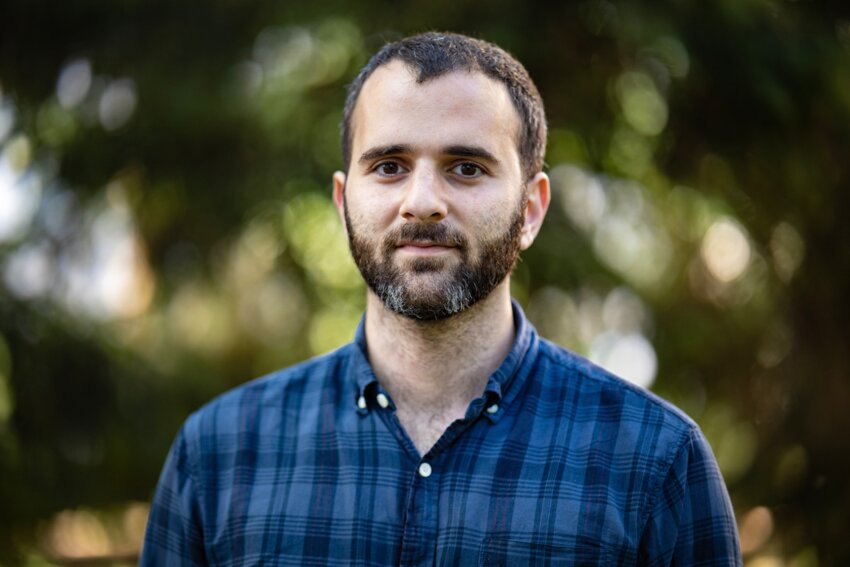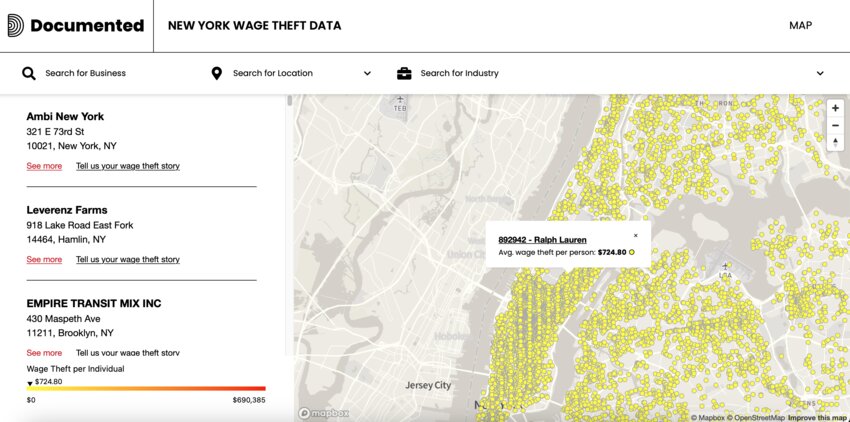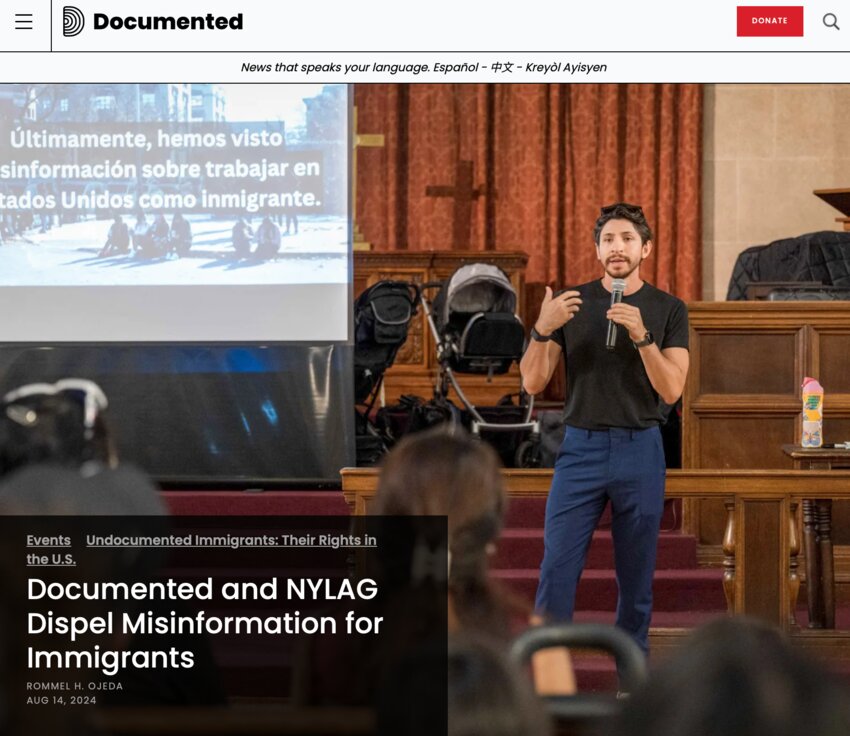Mazin Sidahmed and Max Siegelbaum met while reporting in the Middle East. They had similar professional backgrounds, often covering immigration around the world. By 2017, life and assignments brought them both to New York City. They shared frustration that reporting on immigrants primarily focused on politics — border politics and D.C. politics — and neglected to tell the stories of the immigrants affected by U.S. immigration policy.
“We felt there was really a need for a site covering immigration at the local level,” Sidahmed said. They also knew that information for immigrant communities needed to be told in their native languages. “That was a core commitment we made when we launched [Documented] in 2018.”
Documented is an independent nonprofit newsroom reporting on and for New York City’s immigrant communities. The team produces a website and its flagship newsletter, “Early Arrival,” published three times a week.
Not long after the launch, the Documented team conducted a needs assessment for New York City’s Spanish-speaking immigrants. It proved insightful. This segment of their audience felt they were too often portrayed in the news as either victims or criminals. The community needs practical, actionable information about navigating New York City. Most get their news from informal social media groups.

That led Document to launch a WhatsApp news service, which proved invaluable during the pandemic.
“New York City’s government listed our WhatsApp as a place for Spanish speakers to go to if they needed information about navigating the pandemic,” Sidahmed said.
They also leverage WeChat and NextDoor to inform Chinese and Caribbean communities, respectively.
Siegelbaum recalled how their work quickly captured the attention of immigration lawyers, nonprofit advocates and lawmakers. Their journalism had an immediate impact.
During a listening tour, the team traveled to Don Bosco Workers in Port Chester, New York. While there, they learned about rampant wage theft by businesses that employ immigrants.
Siegelbaum said they wanted to tell that story and create a practical tool to track these businesses — so immigrants could be apprised of risks and the broader public could know about them in their neighborhoods. Partnering with ProPublica, they created a Wage Theft Monitor based on 20 years of the state’s Department of Labor data. They had to sue the agency for those records.

“We produced a series of stories that eventually led to the introduction of three bills in the state senate to help workers collect their wages,” Siegelbaum said.
They measure impact in three ways. The first is focused on individuals — answering specific questions or providing practical information. There’s also institutional or public policy impact as a result of their reporting. The third level is how Documented inspires other news organizations to cover local immigrant communities in meaningful ways. Sidahmed estimated they've heard from over 100 other newsrooms looking for guidance on how to emulate their example.
Documented operates on a $3 million annual budget. It has received funding from large institutional philanthropists. Hoping to diversify its funding pool, they’re also planning to tap the Center for Community Media’s Advertising Boost Initiative.

Understandably, privacy is a paramount concern among the communities they serve. For that reason, Documented intentionally does not collect or share their data. Many are also fearful about the political rhetoric related to immigrants — and about the possibility of another Trump presidency.
“We have 65,000 people living in the care of New York City, and many of them will likely receive deportation orders,” Siegelbaum said. “I think we will probably see a return of I.C.E. under Trump, which was constantly arresting people, detaining them and deporting them. I think that will spread to the general undocumented community — not just asylum seekers and migrants who’ve arrived here since 2022.” Those policies don’t just impact immigrant communities. When immigrants live in fear, they’re less likely to go to the hospital, access city services or report crimes.
Siegelbaum explained, “That makes the city a more unhealthy and less safe place for the residents.”
 Gretchen A. Peck is a contributing editor to Editor & Publisher. She's reported for E&P since 2010 and welcomes comments at gretchenapeck@gmail.com.
Gretchen A. Peck is a contributing editor to Editor & Publisher. She's reported for E&P since 2010 and welcomes comments at gretchenapeck@gmail.com.
Comments
No comments on this item Please log in to comment by clicking here